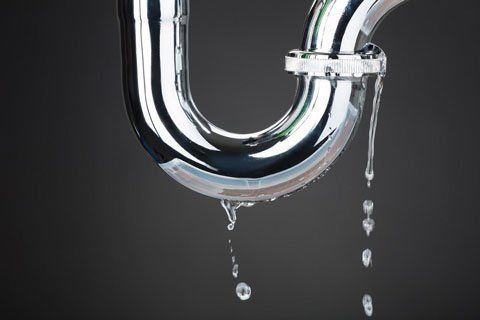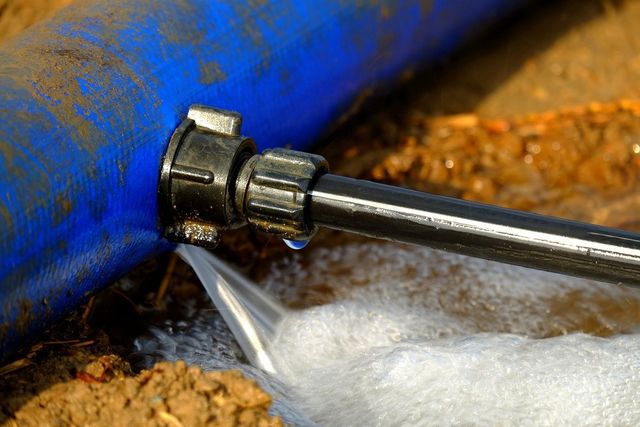How to Find and Repair Work Water Leaks-- A Comprehensive Guide
How to Find and Repair Work Water Leaks-- A Comprehensive Guide
Blog Article
How do you really feel about Finding hidden leaks?

Early detection of leaking water lines can minimize a prospective disaster. Apart from conserving you money, it will minimize the stress as well as aggravation. The minute you locate a leakage, calling your plumber for fixings is the most effective option. Some small water leaks may not be visible. Here are some hacks that assist if you can not identify it with your nude eyes.
1. Take A Look At the Water Meter
Checking it is a surefire way that aids you find leaks. If it moves, that shows a fast-moving leak. This suggests you may have a slow leak that might also be below ground.
2. Inspect Water Intake
Evaluate your water costs and also track your water usage. As the one paying it, you must notice if there are any type of discrepancies. If you find sudden changes, in spite of your intake being the same, it indicates that you have leakages in your plumbing system. Remember, your water expense ought to fall under the same variety each month. An unexpected spike in your expense shows a fast-moving leak.
On the other hand, a constant boost on a monthly basis, despite the exact same behaviors, shows you have a sluggish leakage that's likewise slowly rising. Call a plumber to thoroughly examine your home, specifically if you really feel a warm area on your floor with piping below.
3. Do a Food Coloring Examination
30% comes from toilets when it comes to water intake. Test to see if they are running appropriately. Drop specks of food color in the tank and wait 10 mins. If the color somehow infiltrates your bowl during that time without flushing, there's a leak between the tank as well as dish.
4. Asses Exterior Lines
Do not fail to remember to check your outside water lines as well. Ought to water leak out of the link, you have a loose rubber gasket. One small leak can waste lots of water and also spike your water costs.
5. Check and Evaluate the Situation
House owners need to make it a routine to check under the sink counters as well as even inside cupboards for any type of bad odor or mold and mildew growth. These two warnings indicate a leak so prompt attention is required. Doing routine assessments, even bi-annually, can save you from a major issue.
Inspect for stainings and also compromising as most appliances and also pipes have a life span. If you believe leaking water lines in your plumbing system, do not wait for it to intensify.
Early detection of dripping water lines can reduce a possible catastrophe. Some little water leaks may not be visible. Checking it is a proven way that aids you find leakages. One tiny leak can waste bunches of water as well as increase your water expense.
If you believe leaking water lines in your plumbing system, don't wait for it to intensify.
How to Know If Your Home Has a Hidden Leak
Water Meter Reveals Inexplicable Water Usage
If you’d like to test whether or not there’s a leak somewhere in your home, you can do this using your water meter. Here is how to conduct the test:
Don’t use any water in your home for at least 30 minutes; this also means not turning on faucets or water-using appliances.
Go outside, and check your water meter for activity.
If your water meter shows that there was activity, even though no one was using any water, this proves that there is a leak in your home.Visible Mold or Mildew Growth
Leaks behind walls create moist, dark environments that allow mold and mildew to grow and thrive. Eventually, you might see mold growth forming on the wall closest to a hidden leak.
If mold is growing in an area that receives a high amount of moisture, such as a bathroom, it may simply be an indication that better ventilation is needed. However, if you see mold growth on a wall or the ceiling in an area where you would not expect, you probably have a hidden leak.
Musty, Mildew Odor
Sometimes you might not be able to see the mold or mildew that is growing as a result of a leak. However, the smell can give the problem away just as easily. If you catch a whiff of something musty, there’s a good chance that old water is collecting somewhere in your home that you can’t see.
Stained/Warped Walls, Ceilings, or Floors
When your home soaks up water, a variety of red flags can become visible, including ceiling stains, bubbling drywall, warped walls, and sagging floors. While these issues can be caused by excess humidity, they can also be signs that a pipe or plumbing connection has started leaking behind your walls.
Inexplicably High Water Bill
After a while, you get a general sense for what your water bill should be. If you own a pool or sprinkler system, your bill will tend to be higher during summer. However, if you receive a water bill that seems especially high, and you can’t figure out what caused it, then you may have a hidden leak somewhere that’s increasing your bill.
https://www.plumbingjoint.com/blog/2019/july/how-to-know-if-your-home-has-a-hidden-leak/

I stumbled upon that piece of writing on Hacks to detect leaks when doing a search on the search engines. Sharing is caring. You just don't know, you may be doing someone a favor. We treasure reading our article about Leaking water lines.
Report this page